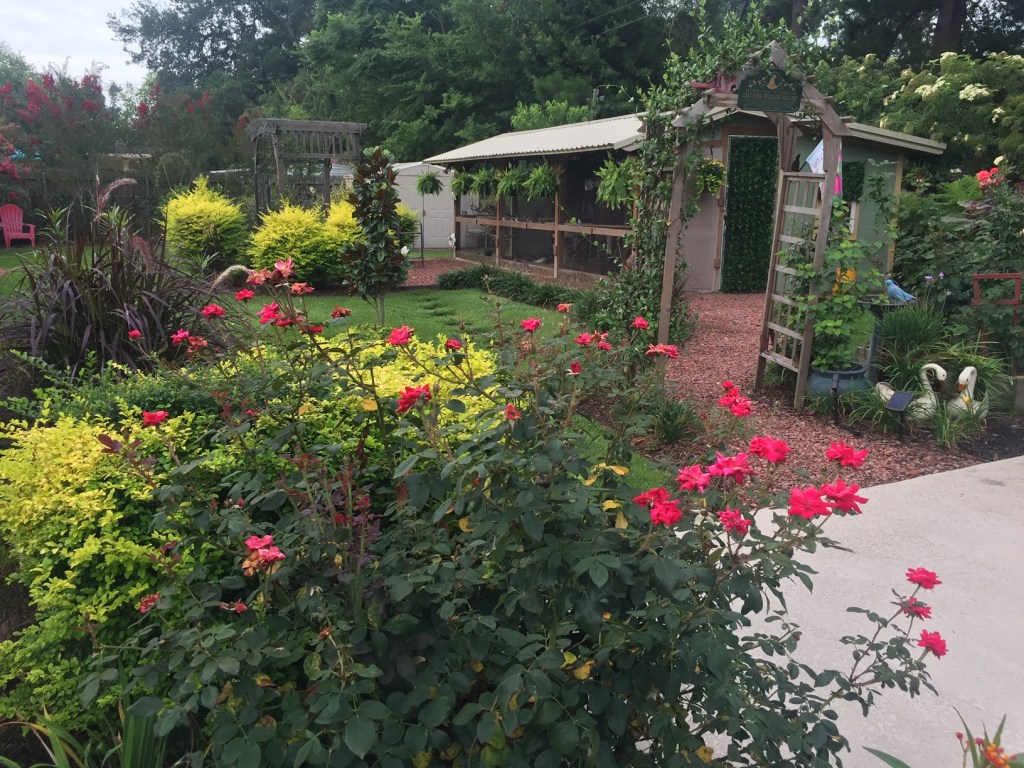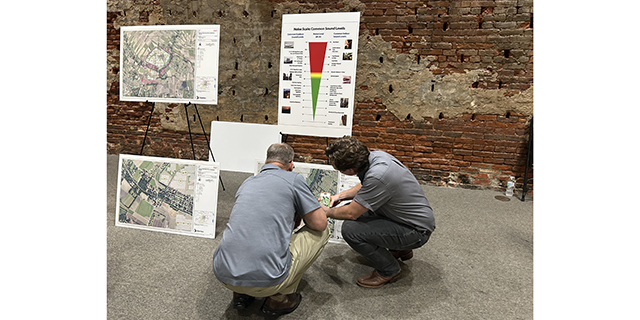How a one-time bird rescue turned into a bird sanctuary
Published 8:00 am Thursday, August 27, 2020

- IMG_9898.JPG
Lawyer Kraig Strenge was working at his office when suddenly, he heard a “whoosh” through the chimney. He peered inside, and spotted the remnants of a birds’ nest with three tiny, pink, wingless chimney swifts inside. He had no idea what to do with them, other than to put them outside in hopes that their mother would return to reclaim her nestlings.
But, through connections on Facebook, he discovered For the Birds of Acadiana, Songbird Rehabilitation and Private Bird Sanctuary. He delivered the fledglings into the loving hands of Julie Rabalais, founder of the rescue facility. On arrival, one was already dead, but the other two were still clinging to life. Rabalais gently placed the survivors into a soft enclosed container with nine other chimney swifts, which she had rescued earlier that week.
Today, those two birds are indistinguishable from their chimney sweep companions. At press time, they had full feathers and were looking more like the “cigar with wings” for which the near-threatened species is known. Rabalais continues to hand feed them with a special insect mixture from an elongated syringe. Once they are mature, they will be released into the wild.
Rabalais started the 501(c)(3) non-profit For the Birds literally in her own backyard. Her beautifully landscaped property is the perfect haven for her rescued birds as well as her pet finches, parakeets and exotics. Currently, she has over 400 birds on her property.
For Rabalais, being a bird-lover started during her childhood in Michigan. “It’s been a lifelong thing for me,” she shares. Her parents were “really into nature,” and their yard was always the “best on the block.”
In the middle of a suburban neighborhood, Rabalais’ family reared all types of birds, including ducks, geese and pigeons. “The neighbors always brought hurt pets to us,” she recalls.
At age 13, Rabalais’ father gave her a necklace with a bird on it – a sign of things to come. He died when Rabalais was just 18. Rabalais’ mother died five years ago. “It changed my life when my Mom died,” Rabalais reveals. “I felt I needed to get into a different direction.”
After operating Jewelie’s Boutique for 14 years, Rabalais sold the business and became a Master Gardener. She began buying birds, starting with doves. Then, a year ago, a neighbor brought three “pink and naked little babies,” which had fallen out of a nest to her. “The sparrows survived and I released them,” she says proudly.
Serendipitously, a woman from the Louisiana Department of Wildlife and Fisheries came to buy parakeets from Rabalais and saw what she was doing with wild birds. “She thought I would be a good fit for rescuing birds,” Rabalais says.
This Spring, Rabalais launched For the Birds, offering songbird and migratory bird rehabilitation. “The goal is rehabilitation and to release birds to go back into the wild,” she explains.
Rabalais’ mission is to educate people on how to rescue birds. Nine times out of 10, a birdling on the ground is trying to find a way to get back to its parents, who are watching nearby. But the problem is that many of these nestlings are injured or orphaned. “Our job as wildlife rehabilitators is to know when to bring a bird to us,” Rabalais says. “But, there is no replacement for parents rearing a bird.”
Where Rabalais comes in is when a bird is injured, ill or orphaned. Rabalais is currently rehabilitating eight young mockingbirds, seven blue jays and 12 chimney swifts. Rabalais advises people not to cap chimneys because it is causing a decline in these birds. “The numbers of chimney swifts are declining significantly,” she emphasizes. “There’s been a 70 percent decline in these birds.”
Through For the Birds, Rabalais wants to educate and create public awareness about wild birds. Donations for the nonprofit go towards the birds as well as materials, including food, caging and bed fills.
Soon, Rabalais is starting sub-permitting classes. “If people have adequate training, they could take the birds home and help me take care of them,” she says. “It’s a commitment.”
SIDEBAR
Julie’s Tips for Bird Rescue
If the bird is hurt or sick, call For the Birds or an LDWF licensed wildlife rehabilitator
Until you can get the bird to a rehabilitator:
Do NOT give the bird any food or liquids (feeding a bird incorrectly can result in injury or death)
Use gloves or use a cloth barrier when handling
Place baby birds in a box lined with a soft cloth and make sure the box has holes for ventilation
Keep birds in a warm, dark, quiet place
Leave the birds alone
Keep children and pets away
Call For the Birds at 337-501-4523 as soon as possible





